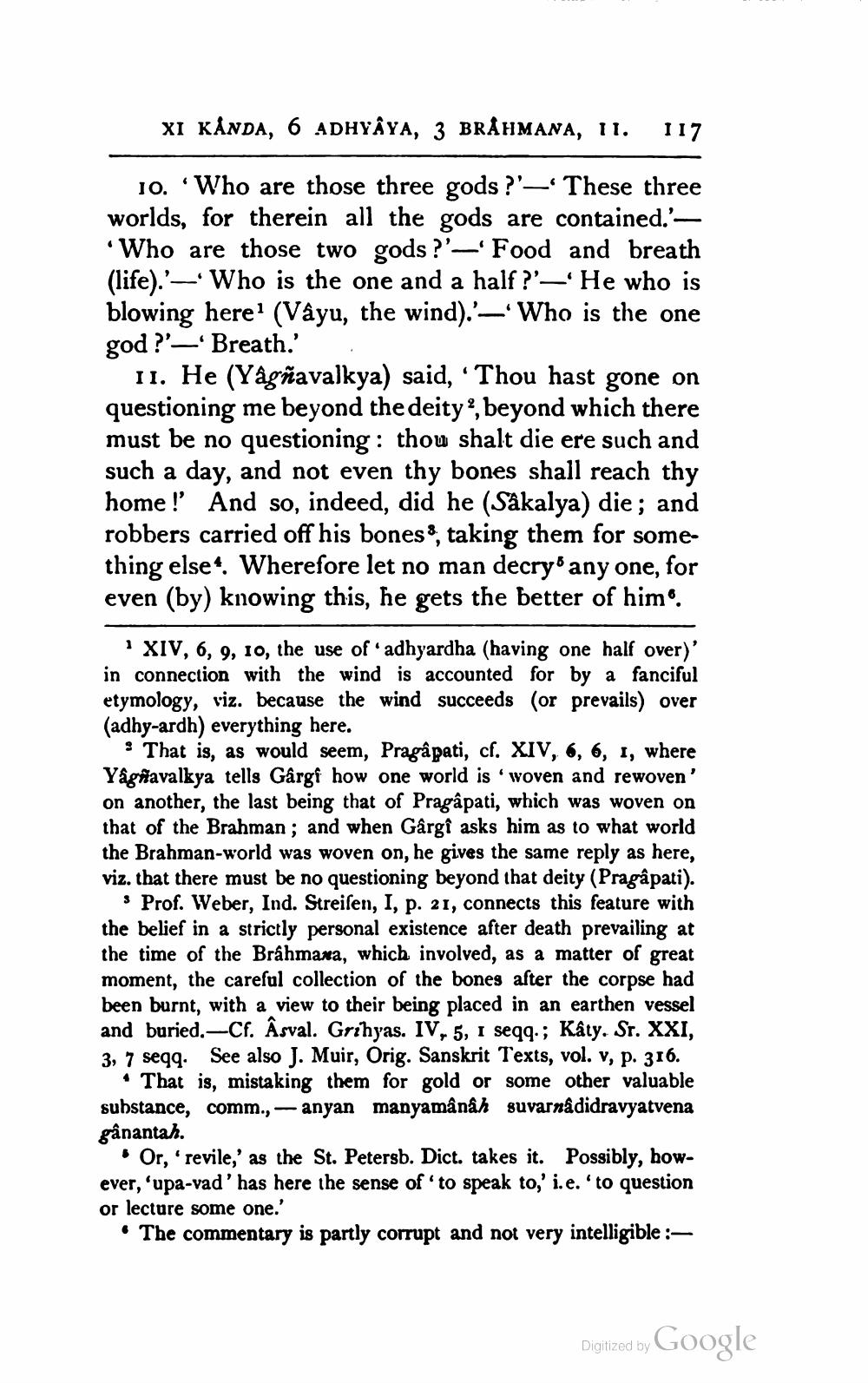________________
XI KÅNDA, 6 ADHYAYA, 3 BRAHMANA, 11.
117
10. Who are those three gods ?'—* These three worlds, for therein all the gods are contained.'
Who are those two gods ?'--'Food and breath (life).'— Who is the one and a half ?'—' He who is blowing here? (Vậyu, the wind).'-—'Who is the one god?'_Breath.'
11. He (Yågñavalkya) said, 'Thou hast gone on questioning me beyond the deity?, beyond which there must be no questioning : thou shalt die ere such and such a day, and not even thy bones shall reach thy home!' And so, indeed, did he (Såkalya) die; and robbers carried off his bones, taking them for something else? Wherefore let no man decry' any one, for even (by) knowing this, he gets the better of himo.
* XIV, 6, 9, 10, the use of adhyardha (having one half over) in connection with the wind is accounted for by a fanciful etymology, viz. because the wind succeeds (or prevails) over (adhy-ardh) everything here.
? That is, as would seem, Pragâ pati, cf. XIV, 6, 6, 1, where Yaghavalkya tells Gârgf how one world is woven and rewoven' on another, the last being that of Pragâpati, which was woven on that of the Brahman; and when Gargi asks him as to what world the Brahman-world was woven on, he gives the same reply as here, viz. that there must be no questioning beyond that deity (Pragâpati).
s Prof. Weber, Ind. Streisen, I, p. 21, connects this feature with the belief in a strictly personal existence after death prevailing at the time of the Brahmana, which involved, as a matter of great moment, the careful collection of the bones after the corpse had been burnt, with a view to their being placed in an earthen vessel and buried.-Cf. Asval. Grihyas. IV, 5, I seqq.; Kâty. Sr. XXI, 3, 7 seqq. See also J. Muir, Orig. Sanskrit Texts, vol. v, p. 316.
• That is, mistaking them for gold or some other valuable substance, comm., -anyan manyamânâh suvarnâdidravyatvena gânantah.
• Or, revile,' as the St. Petersb. Dict. takes it. Possibly, however, 'upa-vad' has here the sense of to speak to,' i.e.'to question or lecture some one.'
• The commentary is partly corrupt and not very intelligible :
Digitized by Google




